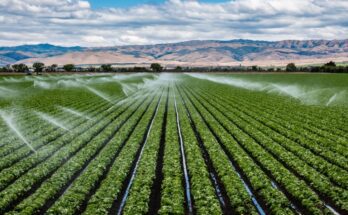The Concept of Ecological Balance
Nature is a complex web of interconnected systems, each playing a crucial role in maintaining the health of our planet. This intricate balance is essential for the survival of all living organisms, including humans. Understanding how these systems work together can help us appreciate the importance of preserving our natural world.
The Building Blocks of Ecosystems
At the heart of every ecosystem are several key components:
- Producers: Plants and other organisms that create their own food through photosynthesis
- Consumers: Animals that eat other organisms for sustenance
- Decomposers: Bacteria and fungi that break down dead matter
- Abiotic factors: Non-living elements like water, air, and soil
These components interact in countless ways, forming food chains and webs that transfer energy and nutrients throughout the ecosystem.
The Importance of Biodiversity
Biodiversity refers to the variety of life forms within an ecosystem. A diverse ecosystem is more resilient and better equipped to handle environmental changes. Here’s why biodiversity matters:
- Increased productivity: More diverse ecosystems tend to be more productive
- Enhanced nutrient cycling: Different species play various roles in recycling nutrients
- Improved ecosystem services: Diverse ecosystems provide better pollination, water purification, and climate regulation
- Greater stability: Biodiversity helps ecosystems recover from disturbances more quickly
Climate and Its Impact on Ecological Balance
Climate plays a crucial role in shaping ecosystems and maintaining ecological balance. Changes in temperature, precipitation patterns, and extreme weather events can significantly impact the delicate equilibrium of nature.
Effects of Climate Change on Ecosystems
| Impact | Description |
| Shifting habitats | Species may need to move to new areas as their current habitats become unsuitable |
| Altered timing of life cycles | Changes in seasonal patterns can disrupt breeding and migration cycles |
| Increased vulnerability to pests and diseases | Warmer temperatures can allow pests and pathogens to thrive in new areas |
| Changes in species interactions | Shifts in population dynamics can affect predator-prey relationships and competition for resources |
Human Influence on Natural Balance
Human activities have had a profound impact on the Earth’s ecosystems. Some of the ways we affect ecological balance include:
- Habitat destruction and fragmentation
- Pollution of air, water, and soil
- Overexploitation of natural resources
- Introduction of invasive species
- Alteration of biogeochemical cycles
Understanding these impacts is crucial for developing strategies to mitigate our negative effects on the environment.
Restoring and Maintaining Ecological Balance
Efforts to restore and maintain ecological balance are essential for the health of our planet. Some key strategies include:
- Conservation and protection of natural habitats
- Sustainable resource management
- Reduction of pollution and waste
- Restoration of degraded ecosystems
- Education and awareness programs
Many organizations and individuals are working towards these goals. For example, the Balance of Nature approach emphasizes the importance of maintaining equilibrium in natural systems for overall health and well-being.
The Role of Technology in Environmental Conservation
Advancements in technology have provided new tools for monitoring and preserving ecological balance:
- Remote sensing and satellite imagery for tracking deforestation and land-use changes
- DNA sequencing for studying biodiversity and identifying new species
- AI and machine learning for analyzing large ecological datasets
- IoT devices for real-time monitoring of environmental conditions
These technologies allow scientists and conservationists to better understand and protect ecosystems.
Personal Actions for Supporting Ecological Balance
Individuals can play a significant role in maintaining ecological balance through their daily choices and actions:
- Reduce, reuse, and recycle to minimize waste
- Choose sustainable and locally sourced products
- Conserve energy and water
- Support conservation organizations and initiatives
- Participate in local environmental projects
By making conscious decisions, we can all contribute to the preservation of our planet’s delicate balance.
The Future of Ecological Balance
As we face ongoing environmental challenges, the future of ecological balance depends on our ability to adapt and implement sustainable practices. Some key areas of focus for the future include:
- Developing clean energy solutions
- Implementing circular economy principles
- Enhancing urban green spaces and biodiversity
- Improving agricultural practices to reduce environmental impact
- Advancing international cooperation on environmental issues
By working together and embracing innovative solutions, we can help ensure a more balanced and sustainable future for our planet.
Wrapping Up: The Ongoing Journey of Environmental Stewardship
Maintaining ecological balance is an ongoing process that requires constant attention and effort. As we continue to learn more about the intricate workings of nature, we must apply this knowledge to develop more effective conservation strategies. By recognizing the interconnectedness of all living things and the delicate balance that sustains life on Earth, we can work towards a more harmonious relationship with our natural world. The journey towards ecological balance is not just about preserving nature for its own sake, but about securing a healthy and sustainable future for all life on our planet.



